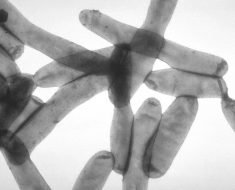(HealthDay)—Among a cohort of individuals without cardiovascular disease (CVD) not receiving antiplatelet therapy, most major bleeding events involved gastrointestinal bleeding and 7 percent of bleeding events were fatal, according to a study published online June 26 in the Journal of the American Medical Association.
Vanessa Selak, Ph.D., from the University of Auckland in New Zealand, and colleagues performed a prospective cohort study of 359,166 individuals aged 30 to 79 years, who had a CVD risk assessment between 2002 and 2015 and were not receiving antiplatelet therapy, to determine the risk of major bleeding.
The researchers found that 3,976 individuals had a major bleeding event during 1,281,896 person-years of follow-up. Gastrointestinal (GI) bleeding was the most common type of bleeding event (73 percent). Of the 274 fatal bleeding events (7 percent), 153 were intracerebral. The risk of a nonfatal GI bleeding event was 2.19 per 1,000 person-years in the baseline cohort, 1.77 in the non-high-risk cohort, and 1.61 in the nonmedication cohort. For GI bleeding, the case fatality was 3.4 percent in the baseline cohort, 4 percent in the non-high-risk cohort, and 4.6 percent in the nonmedication cohort.
“These findings provide baseline bleeding risk estimates that could inform decision making for prevention of cardiovascular disease,” write the authors.
Source: Read Full Article





